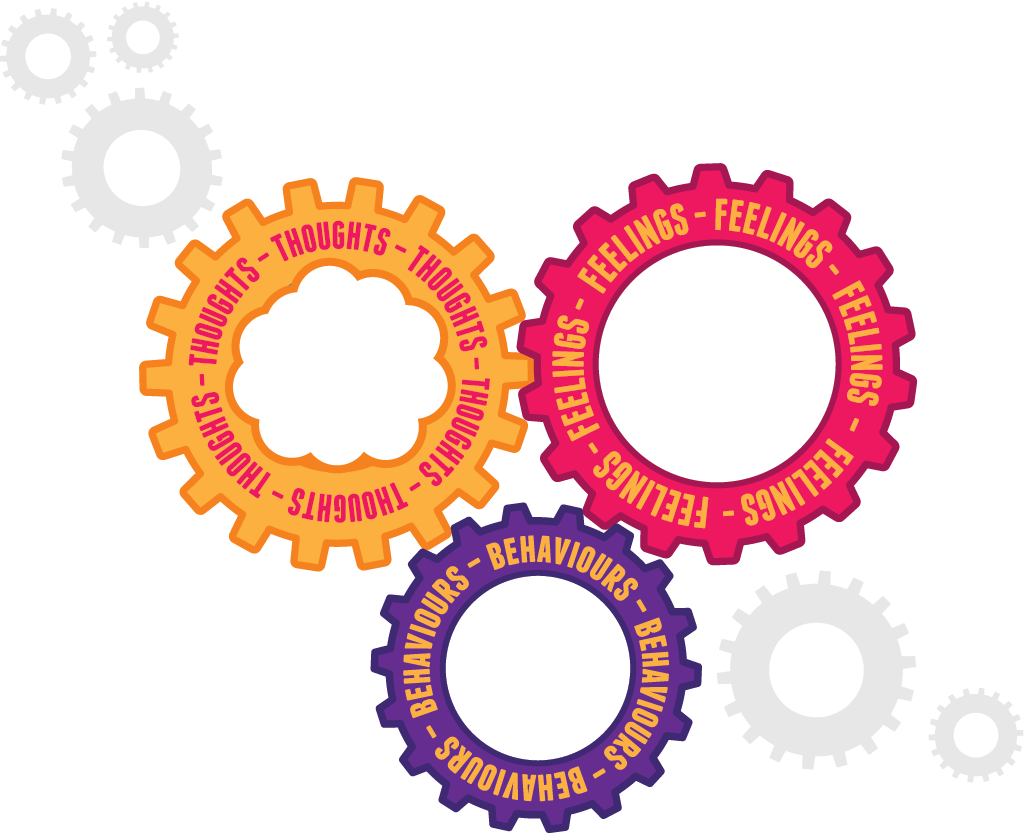
The CUES Story
CUES is an innovative prevention and early intervention programme rooted in evidence-based Cognitive Behaviour Therapy (CBT) and designed by our Clinical Psychologists and CBT Therapists in response to direct feedback – about the need to learn how to look after our mental health from a young age – gathered over many years from children and adolescents they have worked with in South London and Maudsley NHS Foundation Trust.
The programme teaches primary-aged children (7-10 years) cognitive strategies and simple but effective behavioural techniques with the help of multi-media and fun hands-on activities that make abstract concepts more concrete and memorable. Flexible and adaptive responses to difficulties are promoted, including self-regulation (the ability to monitor and manage thoughts, behaviours and emotions; especially important when things are difficult or when strong emotions take over) and support-seeking – recognising when extra help is needed. These approaches encourage children to learn useful ways of looking after themselves and their mental health. They are taught to understand when things are not going well and develop life-long skills to help manage any difficulties now and those that might emerge later in adolescence or adulthood.

"Those who need it most, benefit most…"
CUES clinicians originally delivered the programme to whole classes in primary schools to ensure a universal and wide reach. Service evaluation* showed high rates of acceptability and improvements on whole class wellbeing. Importantly, children identified as more vulnerable (those scoring within a clinical range on self-report measures of wellbeing/distress and emotional and behavioural difficulties) consistently show significant improvement following the CUES programme.
This finding that ‘those who need it most, benefit most’ strengthens our overall vision to reduce stigma, raise awareness and improve the mental health resources available to children in the UK, particularly in areas of high disadvantage.
For schools, we have now digitalised the CUES programme to provide a robust and accessible intervention at much greater scale.
We are also committed to ensuring access to those who might benefit outside of the school context and provide specific programmes for those with chronic physical illness and those with autism and/or ADHD.
*Redfern, A. & Jolley, S., Bracegirdle, K., Browning, S., & Plant, D. (2019) Innovations in Practice: CUES-Ed: an in-service evaluation of a new universal cognitive behavioural early mental health intervention programme for primary school children. Child and Adolescent Mental Health, 24(2), 187-191.
Our values
CUES
believes improving child mental health can help contribute to a healthy family and a healthy society.
CUES
recognises how important it is to find the right time and the right place to build children’s emotional wellbeing and resilience.
CUES
values the importance of delivering to whole class populations, addressing stigma from a young age and emphasising the importance of talking to each other.
CUES
believes that all children have the potential to benefit from school based mental health and wellbeing programmes. Every school day is a learning day.
CUES
equips children with cognitive behavioural skills and strategies to manage difficulties and negotiate life’s challenges – which can also help them better access their learning within school.
What is CBT?
CBT is based on the theory that thoughts, feelings, what we do and how our body feels are all connected. If we change one of these then we can alter the others. When we feel worried or distressed we often fall into patterns of thinking and responding which can worsen how we feel.
CBT helps us notice and change these so that we can feel better – with a range of practical strategies that can help us in the here and now. CBT has a good evidence base which has been carefully reviewed by the National Institute for Health and Clinical Excellence (NICE), who provide independent, evidence-based guidance for the NHS on the most effective ways to treat disease and ill health. It is recommended for a wide range of mental health problems in adults, older adults, children and young people.
CBT also provides a comprehensive range of practical strategies that are applicable to a broad and non-clinical population. As such, it is relevant to the whole class setting where ‘one size doesn’t fit all’. Rather than targeting a specific problem, CUES utilises core CBT techniques and aims to teach children how to manage their current and future wellbeing.
